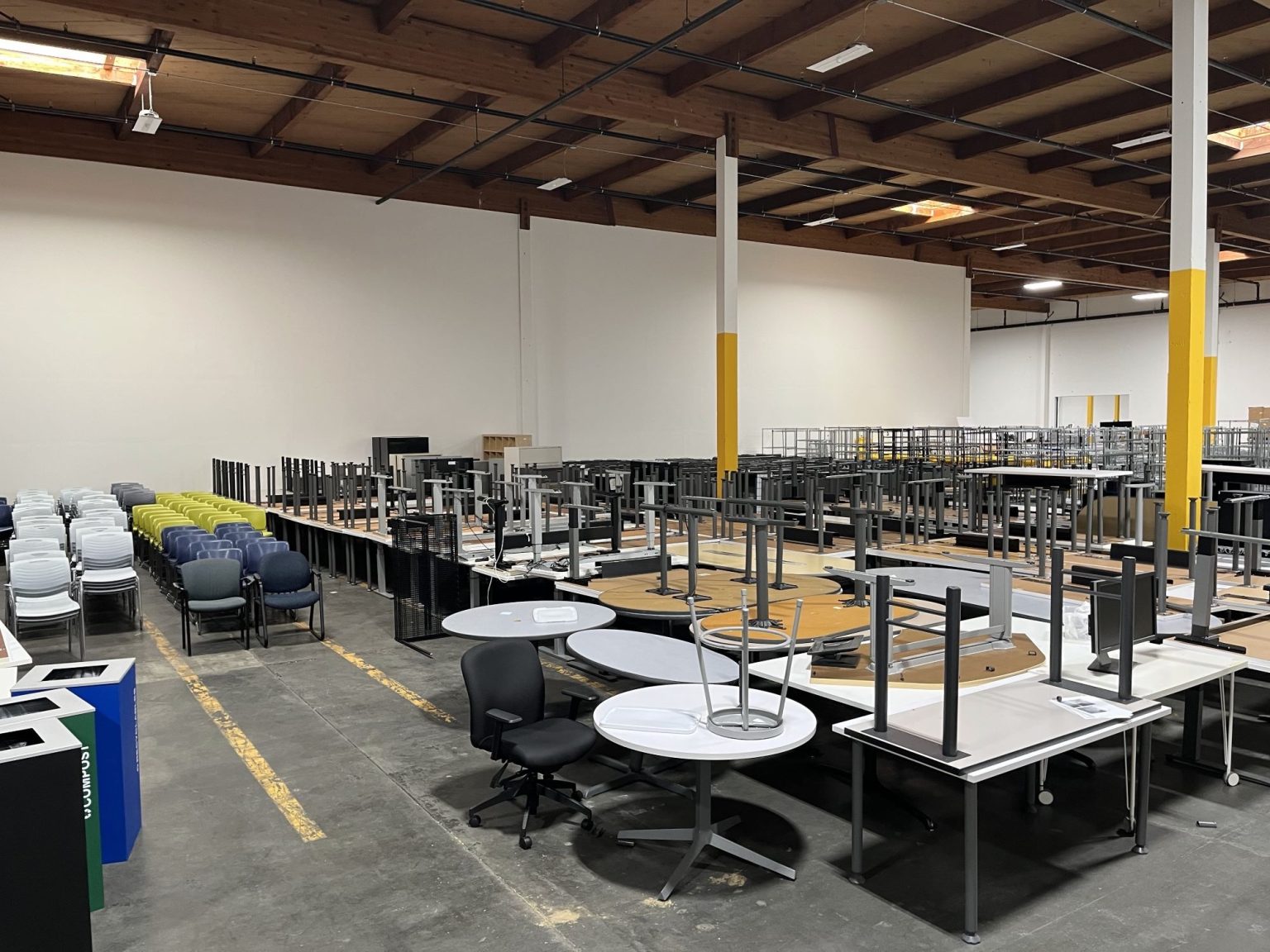Zulily’s Legacy Lives On Through Massive Office Donation to Goodwill
In a meaningful transition that bridges Seattle’s evolving tech landscape with community service, hundreds of office furnishings from the former Zulily headquarters have found new life through Evergreen Goodwill. The substantial donation comes as the building at 2601 Elliott Avenue prepares for its transformation from tech office space to residential apartments under the direction of Vanbarton Group, the commercial real estate investment firm that now owns the property. The contribution – which includes office chairs, desks, kitchen appliances, and IT equipment – represents not just physical assets but also symbolizes the changing tides of Seattle’s business environment, where even as companies rise and fall, their resources can continue to serve the community in new ways. For Goodwill, this windfall saves an estimated $100,000 in equipment costs while diverting valuable resources from landfills, creating a win-win scenario for both environmental sustainability and nonprofit operations.
Zulily’s journey from Seattle tech darling to corporate afterthought reflects the volatile nature of digital retail and venture-backed businesses. Once valued at an impressive $4 billion following its 2013 IPO, the company stood as a shining example of Seattle’s growing technological influence. However, the company’s fortunes changed dramatically after QVC parent Qurate acquired it for $2.4 billion in 2015. The subsequent years witnessed a decline in the company’s prominence, culminating in its sale to Los Angeles investment firm Regent in May 2023 before its eventual shutdown. Even more recent developments saw Beyond emerge as a surprise buyer in 2024, only to announce plans to sell a majority stake to Lyons Trading Company, the parent of flash sales site Proozy.com, marking Zulily’s third ownership change in just two years. This corporate carousel contrasts sharply with the stable, community-focused mission that will now be served by the company’s former office furniture.
The donated items are finding purpose across multiple Goodwill locations, breathing new life into spaces dedicated to community support. A significant portion of the furnishings will help equip Goodwill’s new Georgetown operations center, scheduled to open this fall. This facility represents an expansion of Goodwill’s capacity to serve the community, with the donated furniture allowing for immediate operational readiness without the substantial capital investment typically required for such an endeavor. Additional items are being distributed to Goodwill’s job training and education centers operating across five counties in the region. These centers provide essential skills development and educational opportunities for individuals facing employment barriers, services that gain enhanced capacity through the improved infrastructure provided by the former Zulily assets.
Beyond the direct use in Goodwill’s operational facilities, many items will make their way to Goodwill retail locations throughout the region. This creates a beautiful full-circle moment in the retail ecosystem – furnishings from an online retailer that once disrupted traditional shopping models will now support the in-person retail operations of Goodwill stores. The proceeds from these sales directly fund Goodwill’s free job training and education programs, creating a sustainable funding model that transforms corporate surplus into community opportunity. This transition from corporate asset to community resource exemplifies how the material byproducts of business evolution can be redirected to serve broader social purposes rather than contributing to waste streams.
The timing of this donation coincides with significant changes in Seattle’s commercial real estate landscape, particularly along the waterfront. According to the Daily Journal of Commerce, Vanbarton Group plans to convert the former Zulily building, which occupies a full block near the waterfront, into 262 apartments. This transformation from commercial to residential space reflects broader trends in urban development and the shifting balance between office and housing needs in major metropolitan areas, especially following pandemic-induced changes in work patterns. The building’s conversion speaks to the adaptability required in urban spaces, mirroring in physical form the same principle of repurposing demonstrated by the furniture donation – finding new value and utility in existing resources rather than discarding them.
What stands out about this transition is the thoughtfulness behind repurposing corporate resources for community benefit. Rather than liquidating assets through traditional channels or, worse, sending usable items to landfills, Vanbarton Group’s outreach to Goodwill demonstrates corporate social responsibility in action. The estimated $100,000 in equipment cost savings for Goodwill translates directly into enhanced services for community members in need. This kind of collaborative approach between private business and nonprofit organizations creates models for responsible corporate transitions that other companies might follow when facing similar circumstances of relocation, restructuring, or closure. In this way, even as Zulily’s corporate presence fades from Seattle’s business landscape, elements of its physical footprint continue to contribute positively to the community that once supported its growth, creating a lasting legacy beyond the company’s retail operations.















